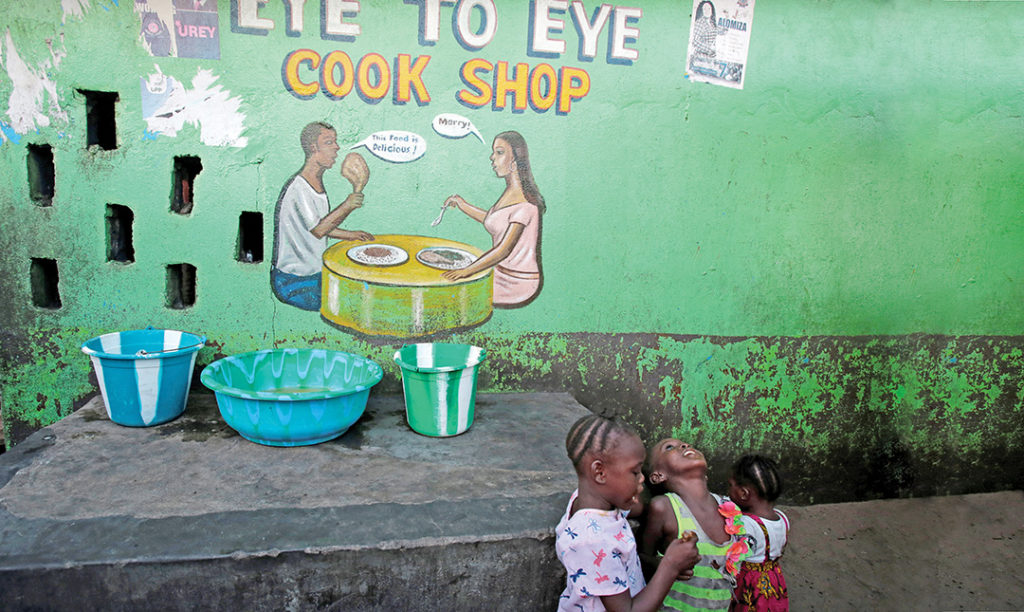ADF STAFF
Just four years ago, Liberia’s West Point was reeling from the biggest Ebola outbreak in West Africa’s history. As the international community battled the ferocious virus, the Liberian military enforced a quarantine that put residents on edge in the sprawling community of 75,000 people.
West Point was formed in the 1940s in the capital city of Monrovia when workers dredged and created the nation’s first shipping port. West Point expanded as war and migration pushed more and more people into the capital.
Ebola has long since receded as an immediate threat for West Point’s residents, but the impoverished community still has plenty of problems, such as crowding, crime, a lack of infrastructure and sparse electricity service.
A recent development stands to bring one vital service to some community residents. Four local organizations — the Alternative to Violence Project-Liberia Student Initiative, Rescue Women, Peaceful United Lutheran Church and Rural Integrated Center for Community Empowerment — have presented and installed a BioSand water filter system to purify drinking water in West Point.
Philip S. Quoqui of the Alternative to Violence Project told Liberia’s New Democrat newspaper in January 2018 that U.S.-based Friendly Water for the World trained several dozen Liberians in how to make, distribute and install BioSand filters.
The filters are encased in concrete and stand about 1 meter tall. Water flows through layers of sand and gravel on its way to being cleansed of bacteria, viruses, amoebas and other contaminants.
“We need to be on the alert because there are so many water-borne diseases,” he said. “We are hearing all kinds of diseases in our country, and some are related to water-borne [causes].”

